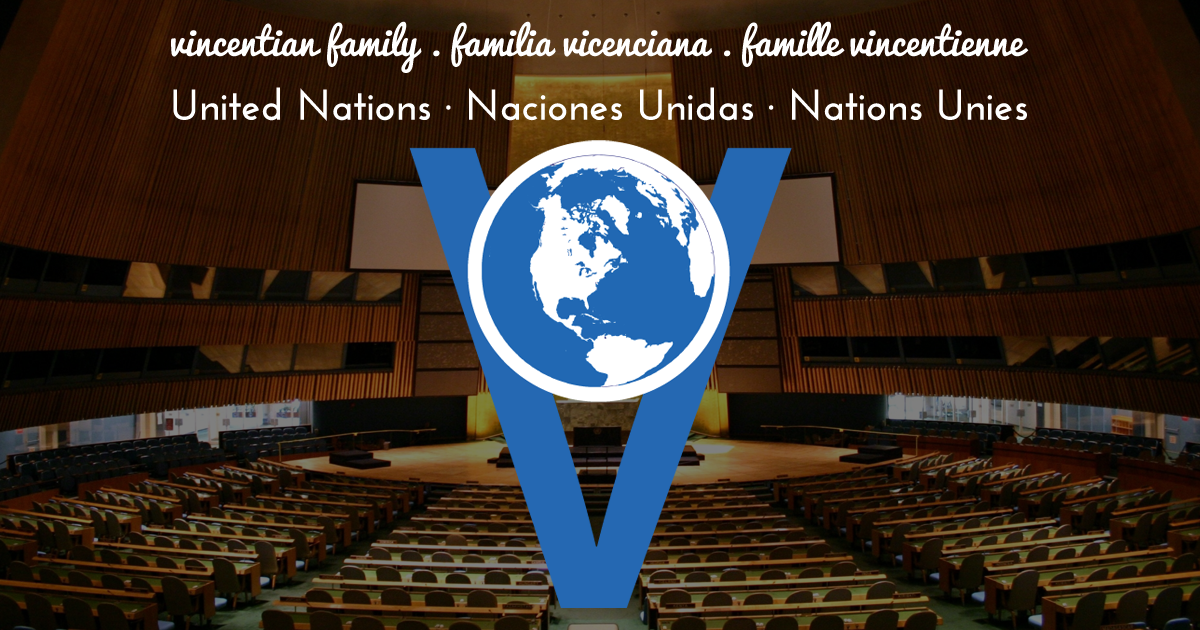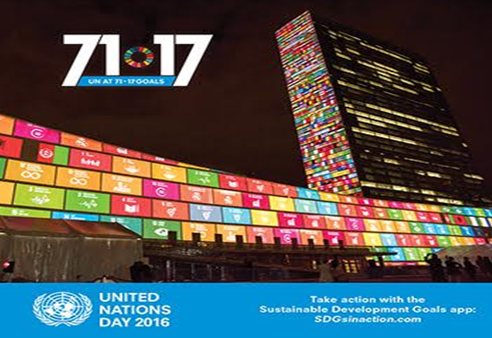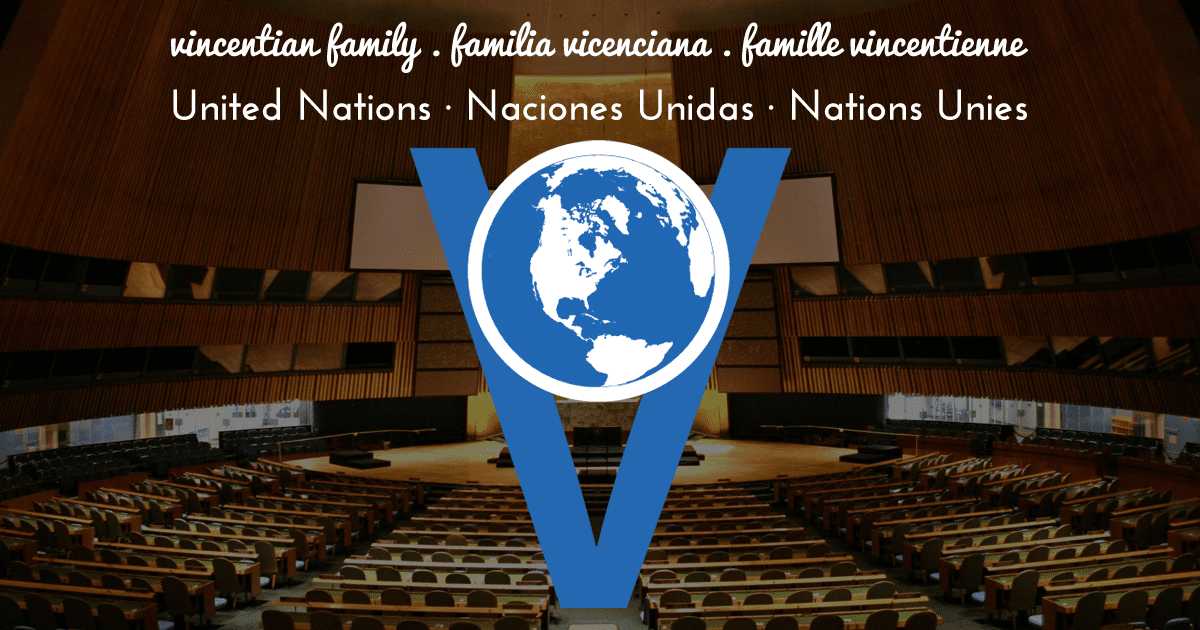A New Secretary General for the UN and UN Day

A New Leader for the UN: Selection of a new Secretary General on October 13 and UN Day: October 24
We, the Vincentian Family at the UN and our respective NGOs, are a small part of the bigger picture of the continuing work of the United Nations. Currently there are 4,407 NGO’s registered at the UN with ECOSOC status, a designation that requires additional credentialing but grants greater access to UN proceedings. There was a time when we all stood outside the gates looking in. Over the years, as the need to work with civil society became apparent to member states (UN member countries) we were granted greater access to briefings, events, meetings and Commissions. Collaborations among civil society and member states are encouraged. As we are given permission to generally work within the UN system, the selection of a new Secretary General is important to us, as that person will continue to set the tone for collaboration, inclusion, and setting priorities.
There are very few rules established for the process of selecting a new Secretary-General. The only concrete text, Article 97 of the United Nations Charter, states “The Secretary-General shall be appointed by the General Assembly upon the recommendation of the Security Council.” Therefore, the selection is subject to the veto of any of the five permanent members of the Security Council. In 1946, the General Assembly adopted a resolution stating it was “desirable for the Security Council to proffer one candidate only for the consideration of the General Assembly (UNGA), and for debate on the nomination in the General Assembly to be avoided.”[1]
Because of the informal regional rotation scheme, many speculated that the next UN Secretary-General would come from Eastern Europe, as that region has never produced a Secretary-General. The current political situation regarding the conflict in the Ukraine and the strong possibility of deadlock over an Eastern European nominee by the Western members of the Security Council made it more likely that candidates from other regional groups (particularly non-European members of Western Europe and Latin America) would be seriously considered.
There were increased calls by NGOs, as well as some states, for a more formal selection and appointment process in which candidates would engage in a more public discussion of their views and platforms. After proclamations from the United States and the UK that they preferred a woman for the role, a movement from UN member states, and a high profile campaign from civil society, the 15 member Security Council voted for Antonio Guterres by acclamation and forwarded his name to the General Assembly on October 6.
The 193 member states of the UNGA formally elected him by acclamation on October 13. Antonio Guterres, former Prime Minister of Portugal, with impressive diplomatic experience and strong humanitarian principles following a decade as the UN High Commissioner for Refugees, will take over as the ninth UN Secretary General from Ban Ki-moon on January 1, 2017. The timeliness of his selection is highlighted as the world is in desperate need this experience right now. Mr. Guterres’ appointment is also a first as he is a former Prime Minister and the role traditionally fell to diplomats, UN insiders, or ex- Foreign Ministers. It is hoped that his experience as a national leader will make him more effective at handling other national leaders.
Speaking shortly after his selection, Secretary General-elect Guterres expressed “gratitude and humility” at his election. He vowed to “serve” those most vulnerable, including victims of conflict, terrorism, violation of rights and poverty and pledged to make the pursuit of peace in a conflict-torn world his “over-arching priority.” He noted that the United Nations has “the moral duty and the universal right” to ensure peace and he would be promoting a new “diplomacy for peace” advocating dialogue to settle disputes.[2]
As gender equity and eliminating violence against women and girls have finally become mainstream discussions, we remain hopeful that HE Antonio Guterres will be effective in rallying all sectors and will continue to encourage the inclusion of civil society toward achieving these goals.
UN Day on October 24 marked the 71st anniversary of the 1945 UN Charter.
The United Nations officially came into existence with the ratification of this founding document by the majority of the participating countries, including the five permanent members of the Security Council.
October 24 has been celebrated as United Nations Day since 1948. In 1971, the United Nations General Assembly recommended that the day be observed by Member States as a public holiday.
This year’s UN Day was used to highlight concrete actions people can take to help achieve the Sustainable Development Goals.

[1] General Assembly resolution 11(I) (1946) Archived 30 January 2016 at the Wayback Machine..
[2] http://economictimes.indiatimes.com/news/international/world-news/hopes-and-expectations-from-a-new-un-secretary-general-antonio-guterres/articleshow/54899393.cms
Tags: United Nations







0 Comments